Middletown Mayor Joseph DeStefano grew up two blocks away from the now vacant O&W train station, a symbol of the railroad industry where his Italian grandparents once earned a living.
As the railroad and manufacturing industry waned in the second half of the twentieth century, his city soon suffered another blow from the development of highways and suburban malls, which sucked out urban businesses, big and small.
It is the kind of urban decay that plagues many industrial cities in the North—a downward trajectory that DeStefano has tried to reverse in the past years under a new vision.
“We changed our focus years ago from trying to recreate the past to a vision for the future, and that vision is arts, education, and entertainment,” DeStefano told The Epoch Times.
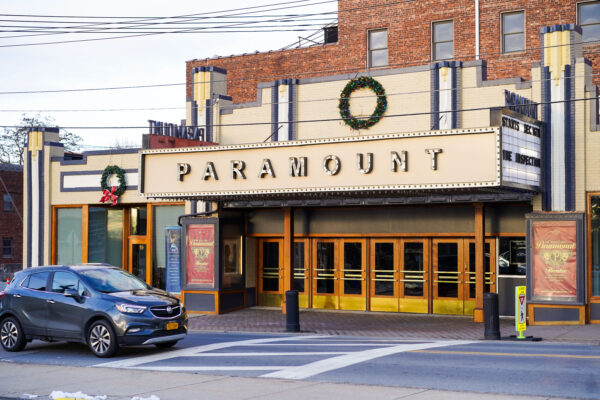
Today, Middletown is the largest and fastest growing among all cities in Orange County, New York, with a population of 30,000, according to the latest census data.
As the only mid-Hudson Valley recipient of a competitive downtown revival grant years ago, the city has done a substantial facelift and infrastructure work in the central business district, laying the foundations for private investments to pour in.
In 2022, new businesses ranging from mom-and-pop shops to larger corporations such as Gan Jing World and Poly Craft Industries put down roots here.
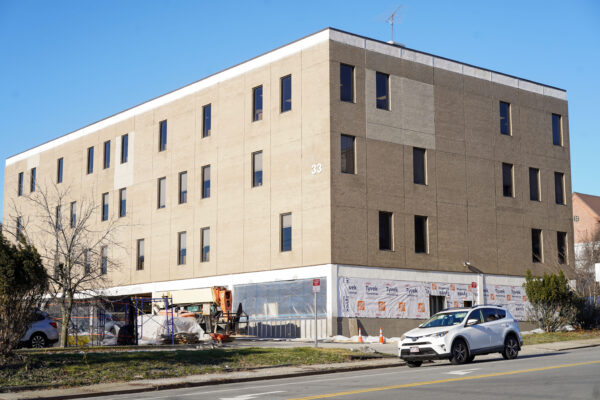
Financially, Middletown is the only city in the county that has never overridden the property tax levy cap set by the state since the law’s inception 10 years ago, according to data by the New York State Office of the State Comptroller.
“It’s the government’s job to give direction, also to provide safety, security, cleanliness—all the basic services that government should provide, and then assist that private money coming into your community and making it work,” DeStefano said.
“That’s what’s happening. They call it making the sausage,” he said.
‘A College Town’
A key part of DeStefano’s city redevelopment plan is education, which started to take off years ago when Touro and Fei Tian College opened Middletown campuses.
The two colleges, together with Orange County Community College, formed what DeStefano calls an education triangle in the city.
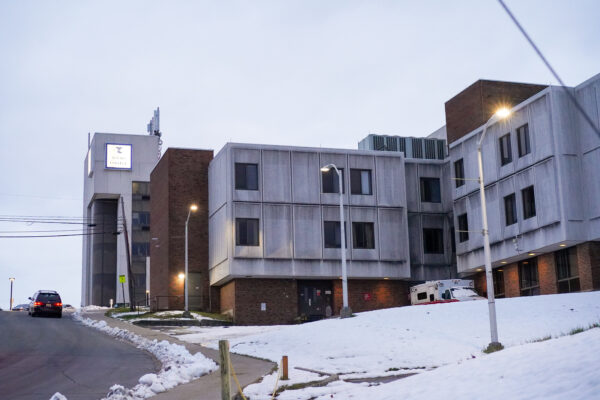
In 2014, Tuoro redeveloped the deserted Horton Hospital and opened a new osteopathic medical school there. Soon afterward, Fei Tian turned the long-vacant state hospital site into its main campus.
The latter just received approval to admit international students in 2022 and has an ambitious growth plan in place, including redeveloping a former state-owned building into a student center.
The city just applied for a grant on behalf of Fei Tian to facilitate the new project, DeStefano said.
“It is not just renovating the buildings but filling it with young people, adding a good vibe to the whole place. It gives us a feeling of a college town,” he said.
“These are people that are living here, doing businesses here, and spending money in the community, and that has raised our housing stock prices—we are looking at it from a business development perspective,” he added.
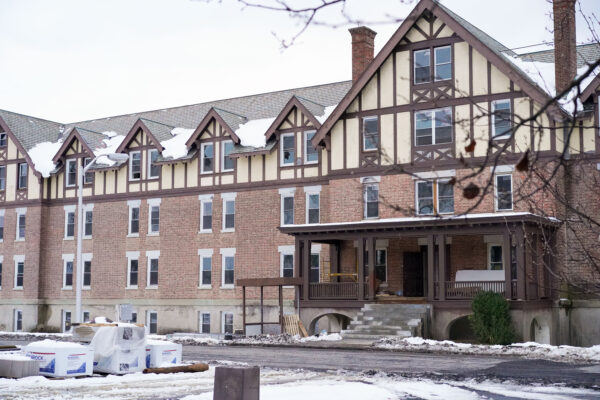
The development of Tuoro and Fei Tian served as an important basis for the city to apply for the inaugural Downtown Revitalization Initiative (DRI) grant, which was launched by former Gov. Andrew Cuomo.
The city’s years of investment in the water and sewer infrastructure also played a role, he said.
In 2016, Middletown became one of 10 municipalities in the entire state—the only one in the entire mid-Hudson Valley region—to receive a $10 million DRI grant to overhaul its central business district.
Downtown Revival and Private Investment
Over the years, the grant has enabled the city to rebuild downtown parking lots, improve facades and storefront signages for businesses, and take on streetscape upgrades.
One highlight is the Rail Trail Commons, which was redeveloped from the former Woolworth building and features an outdoor covered walk-through that connects people to stores and the county Heritage Trail.
The remaining largest chunk of the DRI money is being used on improving downtown sidewalks, according to the mayor.
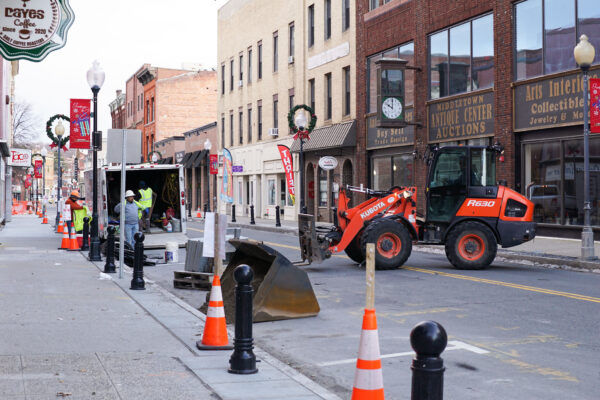
However, as great as grant money is, the city cannot solely rely on it for redevelopment, DeStefano said.
“It is limited because you only get a grant for a purpose, and the authorities aren’t really interested in you next time around—they want to see that money leveraged into larger private projects,” he said, “The purpose of grant money is to stimulate private investment, and that’s what we are doing.”
“When private money comes in, that means your community is viable, and that means that it is on its way to reestablishing the economic vitality,” he added.
Small mom-and-pop shops such as floral store Eternal Bouquets, craft store ArtVichi Creations, and restaurant Piccolo Cucina E Vino opened doors downtown this year.
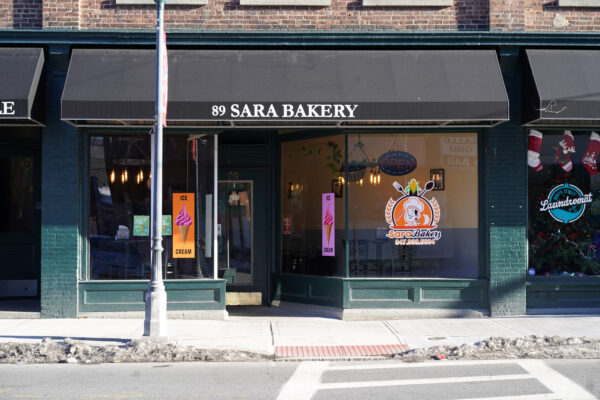
The city also attracted larger businesses this year, including a tech platform company Gan Jing World on Fulton Street and a future Poly Craft Industries printing facility on Industrial Place.
“We are not centrally focused on one entity or one industry, it is a diverse business community. That is sustainable,” DeStefano said.
As the population and businesses grow, the need for recreational activities rises too, he said.
The city just added a new ice rink downtown this year as a winter sports option.
“That brings families downtown, and then they go out to eat. That is how the economy just rolls into one thing and then another,” he said.

A New Life for O&W Station
Among all redevelopments that have been taking place in the city, the most symbolic would be the O&W train station off Wickham Avenue, DeStefano said.
The total project is estimated to cost about $20 million, mostly covered by grant money.
The city has finished the planning stage and started the process for shoring and remediation, with construction to begin likely in early Spring next year.
Agri-Business Child Development has signed on as an anchoring tenant.
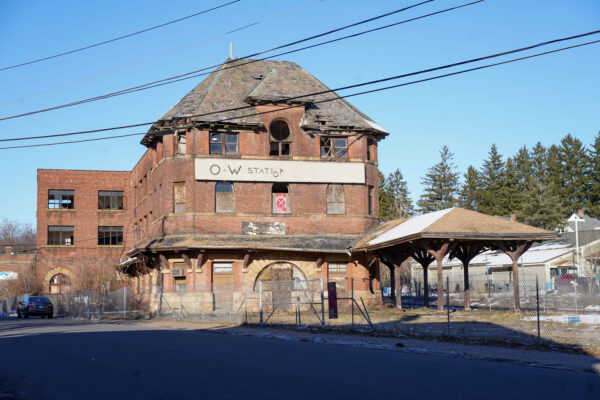
“It is the symbol of urban decay in Middletown, and it is an important building for us to renovate, to keep in place,” DeStefano said. “And it is beautiful. You don’t build buildings like that anymore.”
The station represents the foregone heyday of the Erie Railroad, which brought commerce and wealth to the city and attracted his Italian grandparents here for a better life.
“Middletown has always been a city of immigrants. When I grew up, it was a predominately European immigrant community. Now we have the Latino and Asian communities coming in, and they are instrumental in rebuilding not just our neighborhoods but also our downtown and businesses,” he said.
“The key is embracing change, the first being demographic change,” he said. “I think, in many ways, our community is a better community than it was in the 60s.”









